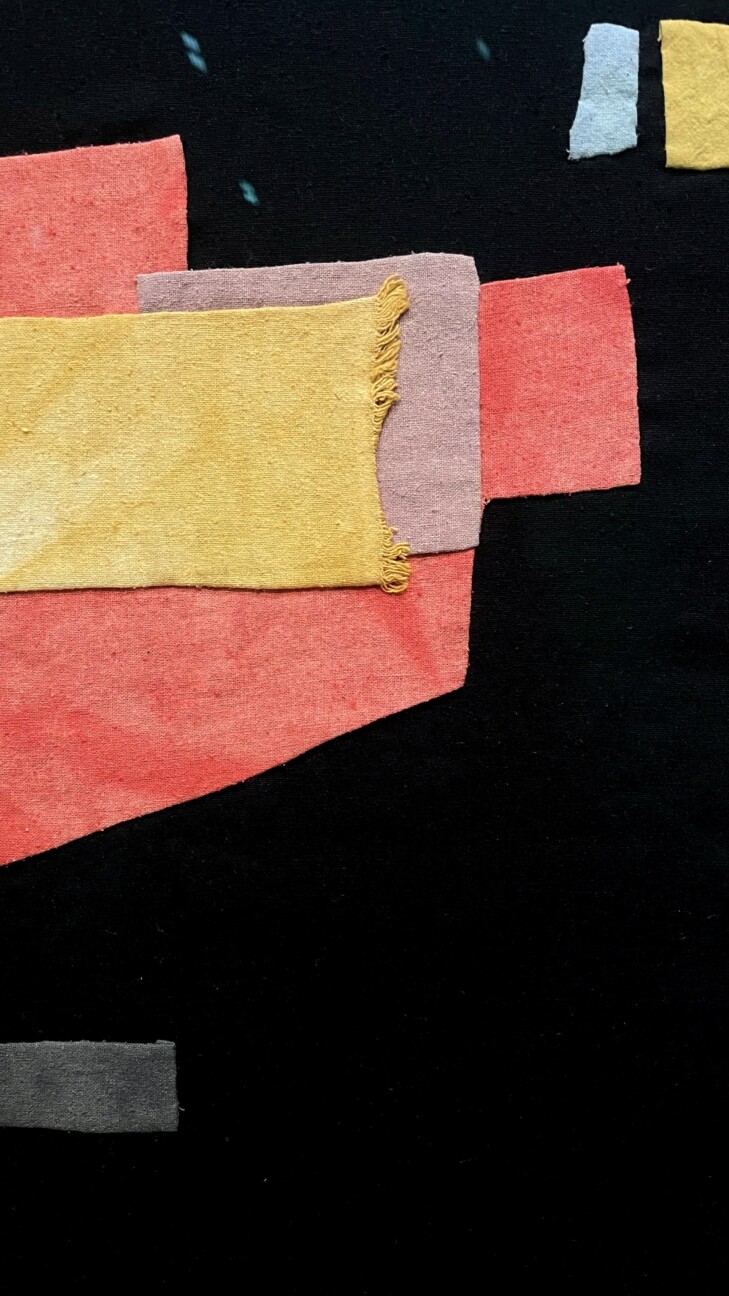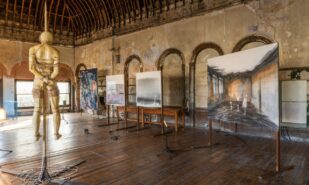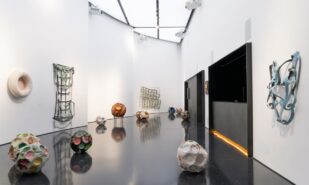Renowned for her indomitable spirit, the diversity of techniques she employs, her prowess to cultivate an artistic environment around herself, the contemporary articulation of individual sensibility, and the profound authenticity of her creations—imbued with familial and national historical narratives—Yto Barrada has been canonized by the luminaries of contemporary art. Her artworks pieces are featured in the collections of Tate Modern, MoMA, Kunsthalle Basel and Fondation Louis Vuitton. Last year, her solo exhibition graced the Stedelijk Museum in Amsterdam, one of the world’s pivotal cultural institutions. Now, London’s Pace Gallery showcases Barrada’s latestproject, the exhibition ‘Bite the Hand.’
Yto Barrada: Interlacing Colour with Memory
Born in Paris in 1971, Barrada spent her formative years in Tangier, following her family’s relocation. Today, she resides in New York, yet her essence remains inextricably linked to Morocco—not solely through the muse of heritage or the ancestral ties but also through her commitment to two nonprofit initiatives. In 2006, she co-founded the Cinematheque de Tangier, where she continues to preside as honorary president. More recently, in 2017, sheinitiated The Mothership project, a fusion of her home, garden, textile studio, and an artistic residence.

Shaped by her studies in political science at the Sorbonne, Barrada’s vision hinges on a methodological approach. She gathers and classifies plants that are receding from Northwest Africa’s terrain, a consequence of climate change and urbanization. She also amasses textiles, dyeing them using natural pigments in accordance with age-old techniques preserved by Moroccan artisans. “Dyeing is like a witch practice, discovering old recipes that are lost and asking people to teach you what they know,” she remarks.

Collage compositions, incorporated with textile fragments by Yto Barrada, are widely presentedat Pace’s ‘Bite the Hand’ exhibition. The display may strike the viewer as subdued, even boring (‘I partake in the most boring process in the world,’ another quote from the artist). Yet, the experimental film ‘A Day is Not a Day,’screened in the gallery’s lower level, might serve as a key to deciphering the essence of Barrada’s artistic intent. This cinematic exploration ventures into color degradation, researched on the technologically advanced farms in Florida and Arizona. There, under corporate commission, experts empirically predict the longevity of color and materials by hastening their aging process. Amidst these chronal laboratories, products symbolic of economic advancement—facing tiles, composite shingles, faux leather—are methodically ‘dried.’ As the voice-over in the film notes, ‘Calendar time is the first way to engage history, while witnessing decay presents another.’

Barrada’s work can be viewed as a contemporary extension of the ‘Casablanca School’ ethos, with Mohammed Melehi as its notable figure, celebrated for his exploration of chromatic intensity and saturation in painting. Utilizing collage, Barrada doesn’t merely compile elements; she weaves them with the threads of personal experience. Amidst the mechanical cadence and monochrome rhythm of existence, she sets a stage of spontaneity, a confluence of mediums, and a range of perceptual alternatives that resonate like the unconventional scalesfound in music. The significance of her work lies not in its potential as a personal form of protest but in its ability to convey a nuanced sense of solitude and a tender engagement with the world and its inhabitants.
At the ‘Bite the Hand,’ what begins as unassuming gradually unfolds into intrigue,inviting the observer to linger over each fabric motif, each print, each unexpected pairing, ultimately investing more time and reflection than one might have initially expected.
‘Bite the Hand’ is on display until May 11 at the Pace Gallery, located at 5 Hanover Square, London.





